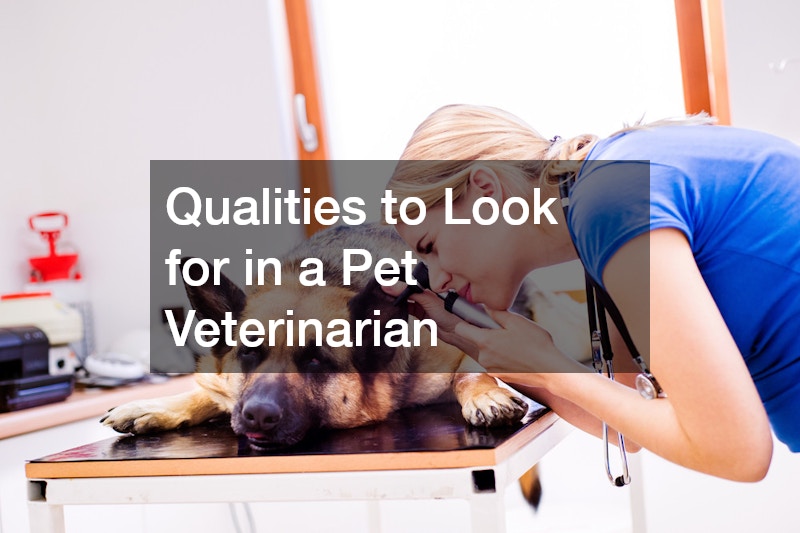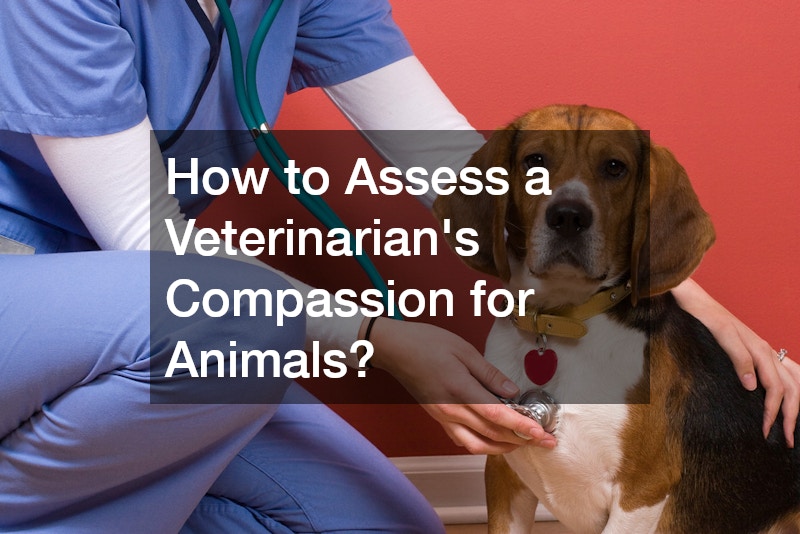

This article explores the essential qualities and factors to consider when choosing a pet veterinarian. With an increasing number of pet owners seeking the best care for their beloved animals, understanding what to look for in a veterinary professional is crucial for ensuring the well-being of pets.
What Qualifications Should a Veterinarian Have?
Educational Background and Licenses
Understanding the importance of a veterinarian’s educational qualifications and required licenses is crucial for pet owners. It helps ensure that the vet possesses the fundamental knowledge needed to diagnose and treat various animal health issues.
Veterinarians must obtain a Doctor of Veterinary Medicine (DVM) degree from an accredited veterinary college. Additionally, they are required to pass national and state examinations to legally practice.
Pet owners should also verify the licenses and certifications of veterinarians they consider. This step provides reassurance that the vet meets the industry standards for practicing animal medicine.
Specialized Training and Certifications
Examining the value of specialized training and additional certifications in veterinary practice can broaden the scope of care a veterinarian can provide. Specialists can offer more in-depth insights and treatments for specific conditions.
For instance, a board certification in veterinary surgery or internal medicine can signify advanced skills and knowledge. It reflects a commitment to continuous learning and staying updated with the latest advancements in veterinary medicine.
Such credentials can be particularly important if your pet requires specialized care. Evaluate these certifications as part of your criteria when selecting a pet veterinarian.
How Important is Experience in Veterinary Care?
Years in Practice
The significance of a veterinarian’s years of experience in providing quality care cannot be overstated. Experienced veterinarians have encountered a varied range of medical conditions and scenarios, which enhances their diagnostic and treatment skills.
Longevity in practice often correlates with a deeper understanding of veterinary medicine. It can also mean that the vet has established trust within the community over the years.
Consider choosing a pet veterinarian who has a combination of experience and a continued passion for learning. This balance ensures that your pet receives both proficient and current care.
Volume and Type of Cases Handled
Evaluating a veterinarian’s experience based on the volume and variety of cases they have managed is equally important as the duration of their practice. A veterinarian with a history of managing diverse cases is likely more adaptable and resourceful.
The ability to handle a range of conditions effectively can reassure pet owners that their pet’s health needs can be competently managed. It also suggests a high level of professional competence and readiness for unforeseen challenges.
Pet owners may inquire about the past cases the vet has handled to gain insight into their expertise. Consider asking how they handle emergencies or chronic illnesses common to your pet’s breed.
What Communication Skills Should a Vet Possess?
Clarity and Understanding
The ability of a pet veterinarian to explain medical terms clearly and answer pet owners’ questions is paramount. Effective communication skills can facilitate better pet care and foster trust with pet owners.
A vet must be able to break down complex information into understandable language. This ensures that pet owners are well-informed about their pet’s health and treatment plans.
It’s essential that pet owners can engage in open dialogue with their veterinarian. Being able to clearly understand a vet’s recommendations can directly impact the quality of care your pet receives.
Empathy and Patience
The importance of empathetic communication and patience in veterinary practice should not be underestimated. Veterinarians often deal with stressed pets and anxious pet owners, making these qualities indispensable.
Empathy allows vets to better connect with both the animal and the owner. Patience ensures that the vet remains calm and composed, even in complex situations.
Pet owners should observe how a veterinarian interacts with both pets and their human counterparts. This assessment can provide insights into the vet’s overall demeanor and professionalism.
How to Assess a Veterinarian’s Compassion for Animals?
Observation of Interaction with Animals
Methods to observe and assess how a pet veterinarian interacts with animals in their care include watching for gentle handling and attentive care. Compassionate vets will take the time to soothe and reassure animals during their visits.
Look for signs of stress reduction techniques and kind verbal communication the vet uses with your pet. Such interactions indicate a deep-seated compassion for animal well-being.
Pay attention to how your pet responds to the veterinarian’s approach. A pet’s comfort can reflect the vet’s genuine empathy and ability to create a safe environment.
Feedback from Other Pet Owners
Utilizing reviews and testimonials from other pet owners to gauge a veterinarian’s compassion can be highly beneficial. These reviews often highlight experiences that resonate with empathy and understanding.
Experienced veterinarians will have a portfolio of satisfied clients that reflects their proficiency and compassion. Positive feedback frequently underscores a vet’s dedication to the animals they care for.
Consider talking to friends or family about their experiences with local veterinarians. Word-of-mouth recommendations can provide a personal perspective on the vet’s character and professionalism.
